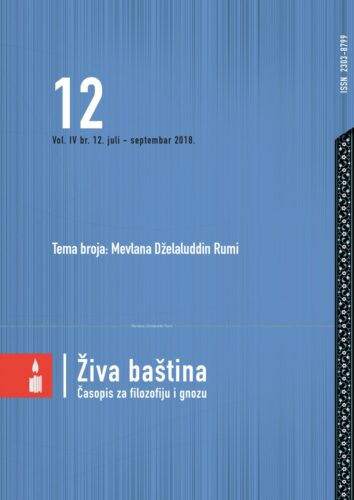UDK 821.222.1.09 Rumi, Dž.
Sažetak
Ono što Rumijevu Mesneviju izdvaja od sličnih djela, poput onih Sanaijevih i Attarovih, jeste Rumijeva nesvakidašnja upotreba književnih i jezičkih elemenata u tom iznimno vrijednom djelu. Po mišljenju autora ovog rada, razlike u toj upotrebi većinom se ogledaju u iskoraku iz okvira uobičajenih književnih normi na semantičkom i retoričkom planu. Pored ukazivanja na Rumijeve otklone od konvencija, u ovom radu izvršena je analiza i klasifikacija tih otklona, a također su razmotrene njihove poetičke posljedice. U tom smislu, rad predstavlja odgovor na neka od ranijih, dugo i često postavljanih pitanja o Rumijevom metodu poduke i odgoja.
Semantic and rhetoric unconventionality in Rumi’s Masnavi
Taghi Poornamdarian
Abstract
The thing that distinguishes Rumi’s Masnawi from similar works, such as those by Sanayi and Attar, is Rumi’s unusual use of literary and linguistic elements in this exceedingly valuable work. According to the author of this paper, the differences of that use are mainly reflected in stepping out of the frames of the usual literary norms on the semantic and rhetorical level. In this paper, apart from pointing at Rumi’s deflection from conventions, analysis and classification of these deflections have been conducted, whereupon their poetical consequences have also been considered. In that sense, the paper represents an answer to some of the earlier questions that have been frequently posed for a long time about Rumi’s method of education and upbringing.
Keywords: unconventionality, opposing conventions, associative poetry, narration, parable, didactic poetry.
[tags]

